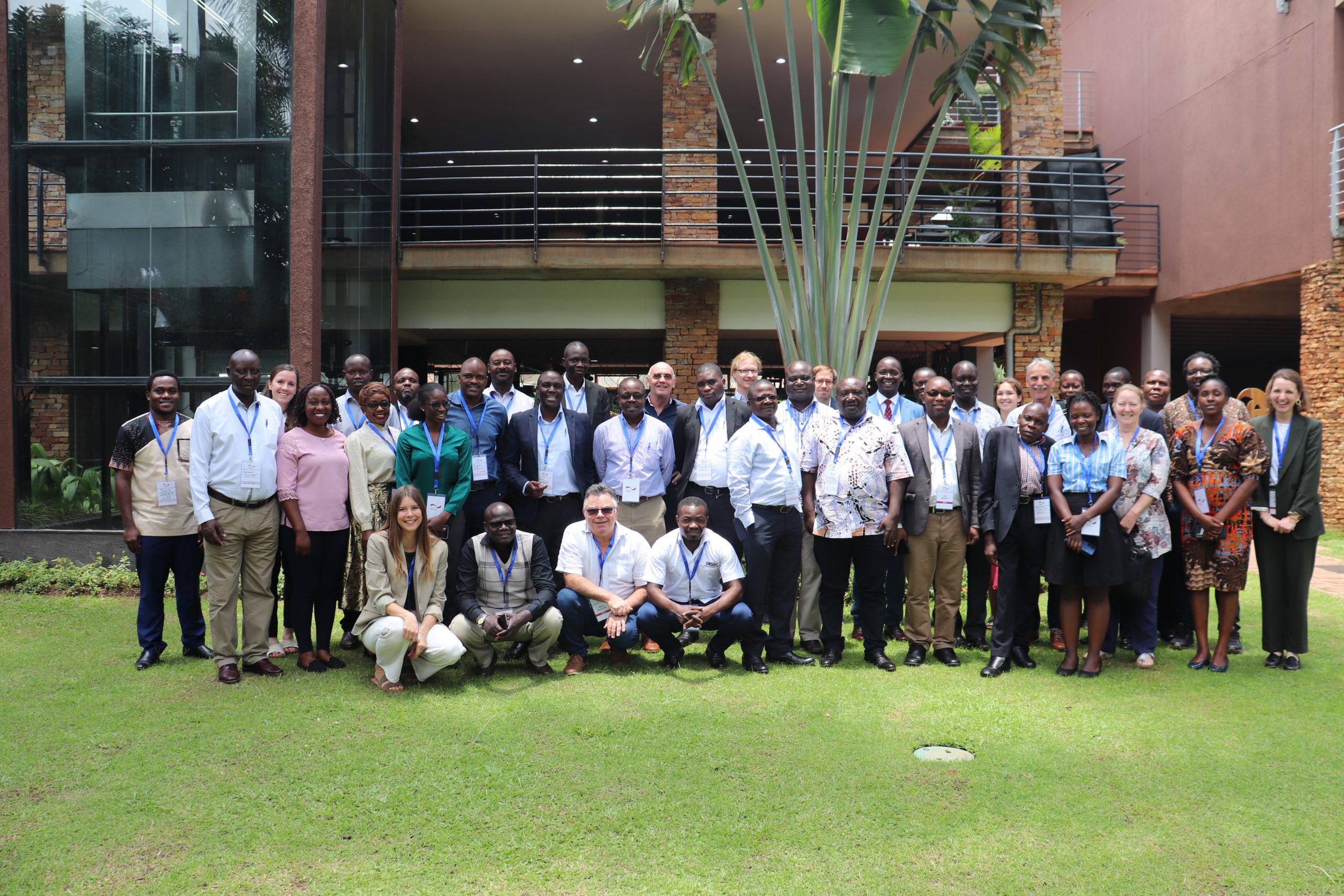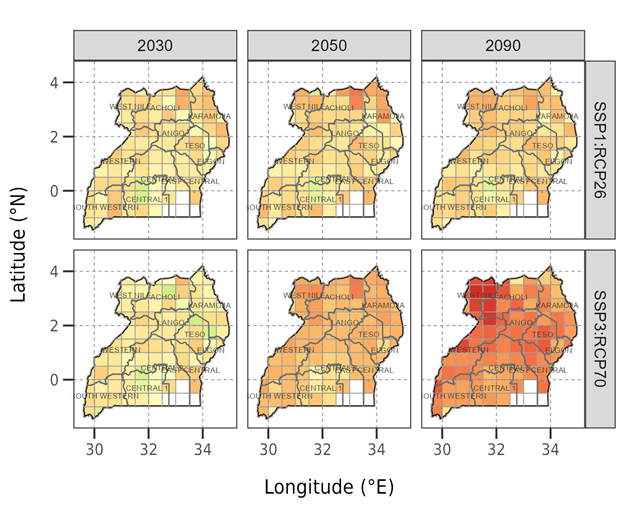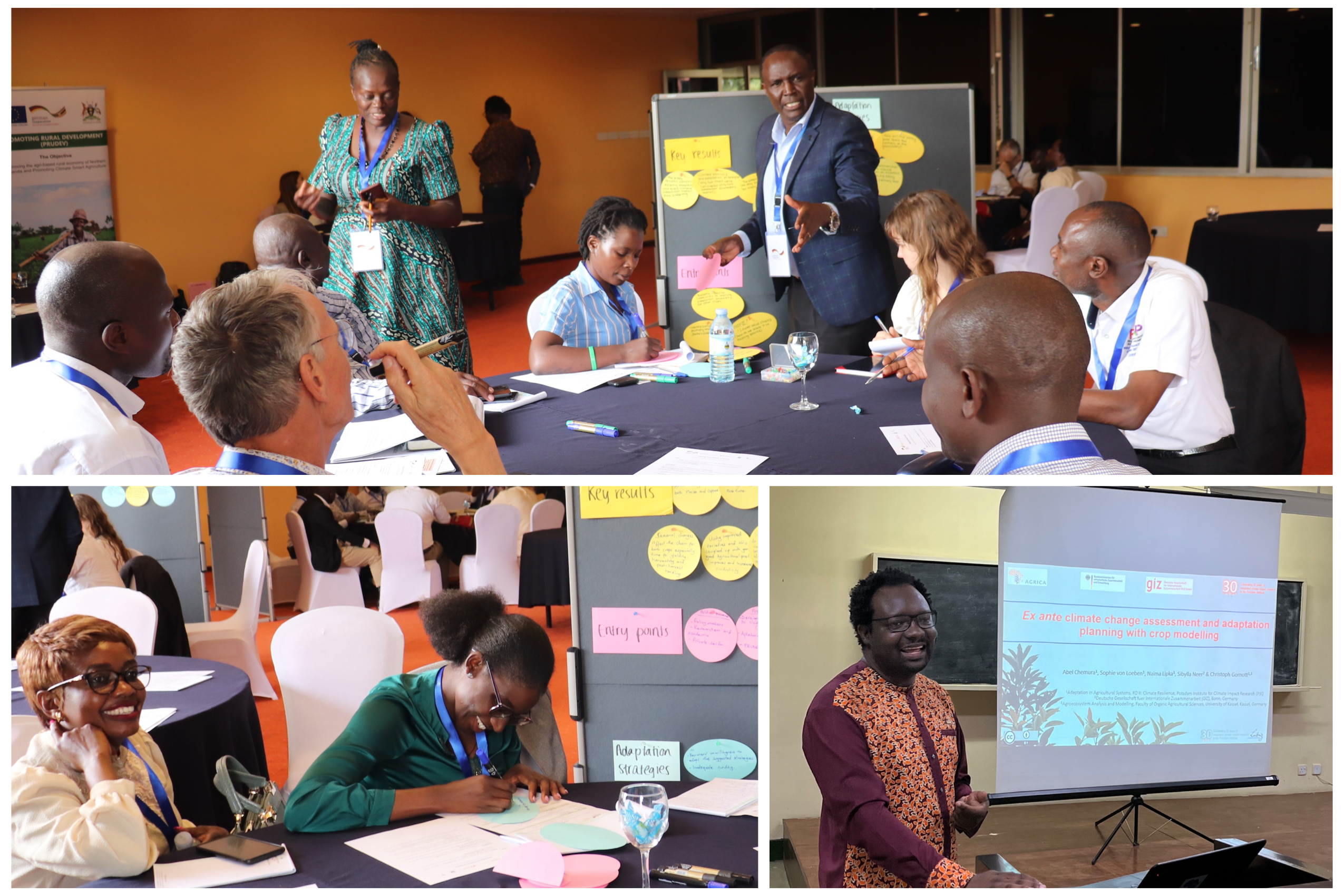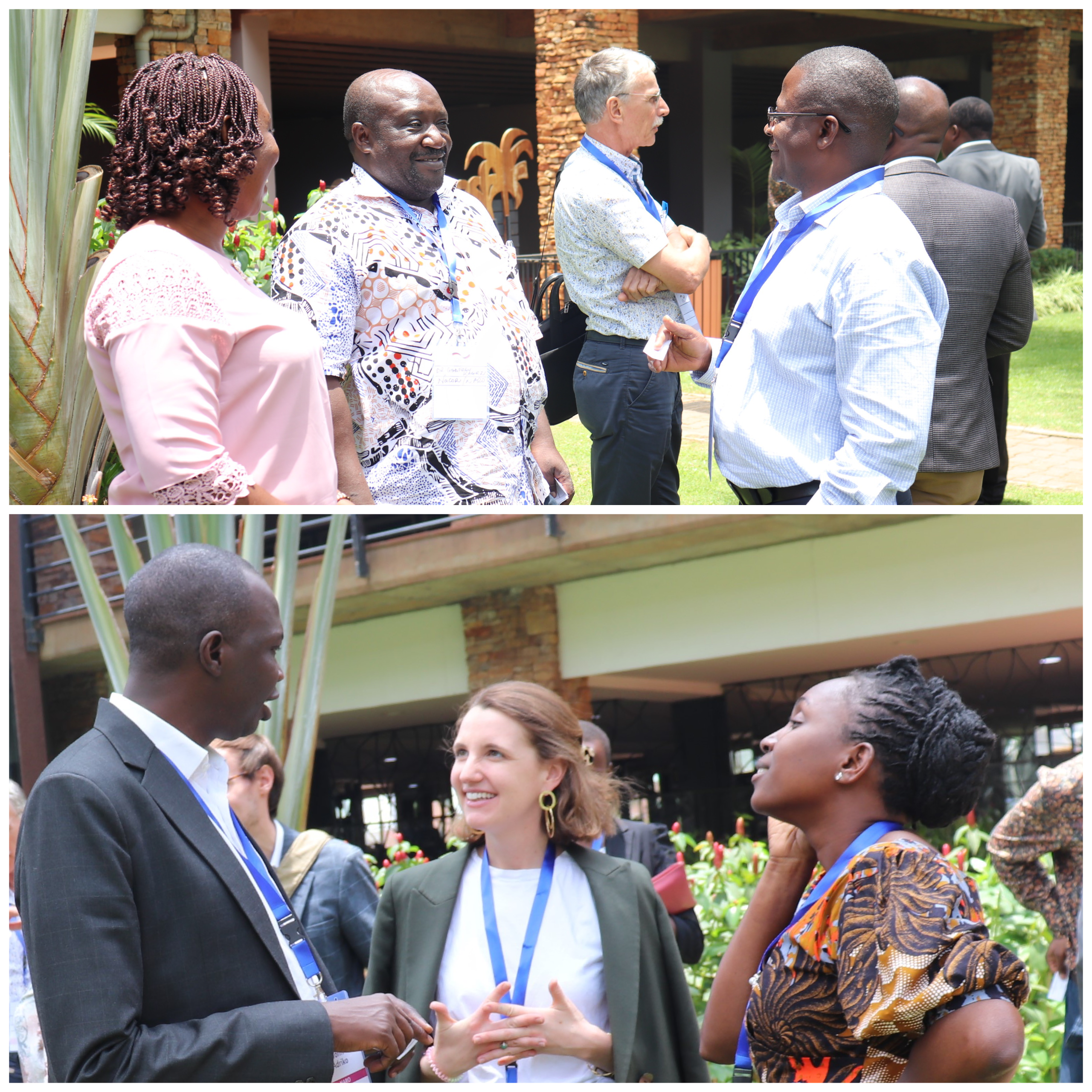PIK and GIZ hold validation workshop in Uganda

The study results
The study covers climate impact projections for two agricultural value chains and analyses different adaptation strategies in terms of their risk mitigation potential and economic viability. The analysis specifically looks at how maize yields and the suitability of coffee will be impacted by climate change as well as how these impacts are felt at post-harvest steps of the respective value chains. To buffer these risks, improved maize varieties, agroforestry measures and improved post-harvest storage are assessed as potential adaptation strategies. Key results include:
- By 2050, temperatures are projected to increase by 1.5 °C under the high emissions scenario.
- Maize yields are projected to decrease between 8.6 % and 14.3 % by 2050 with large repercussions for foods security (see map below).
- Land that is suitable to grow coffee will decrease affecting Uganda’s export earnings, as well as farmers’ livelihoods. Arabica coffee is particularly affected with projected suitability losses of up to 20 % until 2050. Robusta suitability will only slightly, but progressively, decrease with time with higher losses expected under the high emissions scenario of up to 5 %.

Agroforestry, improved seeds and improved post-harvest storage are examples of adaptation strategies that can significantly buffer the projected losses. Also, investing in these adaptation strategies makes good economic sense for farmers as they yield considerable returns on investments.
In addition to the workshop, PIK’s senior scientist Dr Abel Chemura gave a training on crop modelling at the National Agricultural Research Organization (NARO), building on a Memorandum of Understanding between the two institutes to foster scientific collaboration.
A participatory research process
An important core element of the climate risk analysis is a participatory process. The study was initiated at a kick-off workshop in Kampala in March 2021, which was followed by various consultations and on-the-ground data collection processes in Kampala, Soroti, Lira, Agago, Mukono and Mityana. Furthermore, as part of the close research collaboration between PIK and NARO, PIK hosted Ms Eres Awori from NARO as a guest researcher at PIK in Potsdam/Berlin in September 2022.
The study, conducted on behalf of the German Federal Ministry of Economic Cooperation and Development (BMZ), is further embedded in the GIZ project Promoting Rural Development in Uganda (PRUDEV) and the Responsible Land Policy in Uganda (RELAPU) project.

Next steps
The feedback, received at the validation workshop and beyond, is currently being incorporated and the study will be published this summer. Its findings build the basis for the new research project AfriValue, which PIK is conducting on behalf of the BMZ in Ethiopia, Kenya, Rwanda and Uganda. This research will delve deeper into the complex direct and indirect repercussions of climate risks for coffee value chains aiming to identify transformative actions for adaptation along the different steps of agricultural value chains.

For questions and updates, please contact the study coordinator Sophie von Loeben: loeben@pik-potsdam.de


